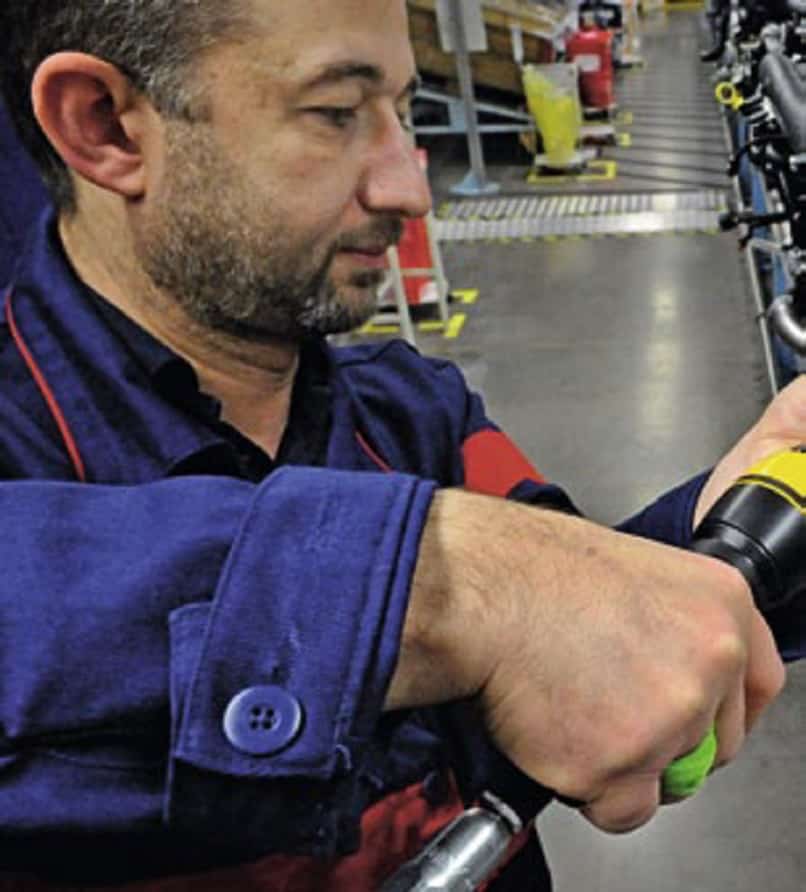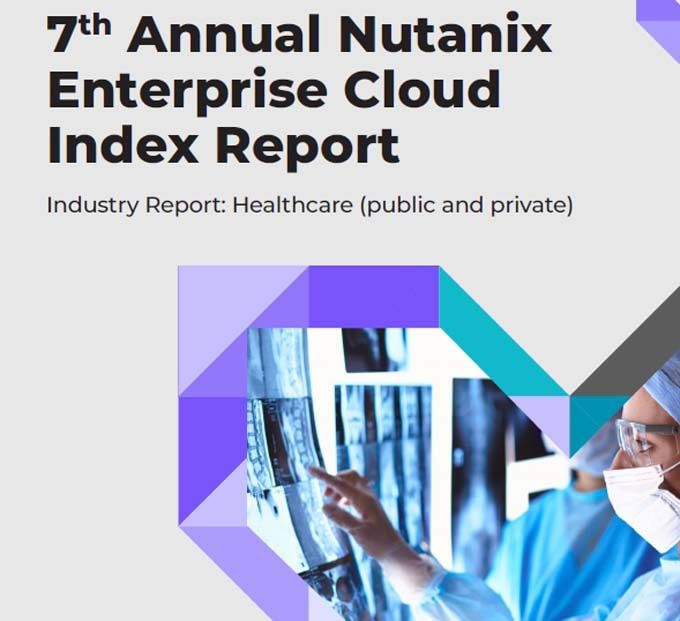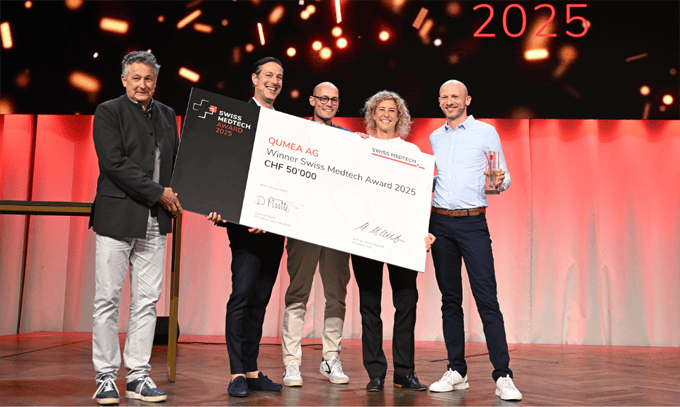learning on the job
For a long time, many companies relied solely on vocational and further training to meet their qualification needs. And in doing so, they lost sight of the fact that learning directly in the process of work has become crucial for competitiveness. Modern work processes are ensuring the renaissance of work-based learning.

Education has been primarily concerned with formal learning that takes place in schools and universities and leads to recognised qualifications. This dominated the offerings of educational and training institutions as well as our idea of what is to be considered learning.
Now, however, a completely different form of learning is coming into focus: informal learning. It takes place in the course of work and is not consciously perceived by the actors as an expansion of knowledge and skills. While they are aware of work processes and
"Learning "en passant"
In this context, the ability to perform work tasks in a targeted manner is - comparable to learning in childhood - learned incidentally or rather casually, so to speak. Informal learning makes a significant contribution to comprehensive professional competence. Empirical studies show that 60 to 80 percent of the professional skills of a skilled worker are acquired in this way.
Advanced skills
Learning in the process of work is about modern work, about holistic and process-related work, which requires new qualifications and competences and makes work-related learning necessary and possible in a previously unknown way.
Purely technical knowledge cannot be dispensed with. But it is not enough. Modern forms of work demand initiative and activity, the recognition and exploitation of opportunities, personal responsibility, goal-oriented action, commitment and perseverance. Equally important are teamwork and communication skills, the ability to work under pressure and deal with unfamiliar, imponderable and new situations, the ability to deal with conflict and the tolerance of frustration, an open mind and openness to new situations, processes and ideas, as well as the ability and willingness to learn. These competencies are increasingly becoming requirements for the workforce. After all, it is not enough to carry out a work task according to the instructions; rather, commitment and responsibility must be assumed in order to guarantee a smooth workflow. Despite a high degree of mechanization and detailed planning, processes by no means run as smoothly and problem-free as assumed, since irregularities or ambiguities or "critical situations" frequently occur due to the multitude of influencing factors and increased complexity. This results in new demands on competence.
The skills required for this are referred to in practice as experiential knowledge and practical intelligence. This requires knowledge of the informal, barely documented deviations from planning. Informal learning leads
Knowledge in practical action
to experiential knowledge, as demonstrated in the skills of the "old hand", in intuitively correct working practices, in a feeling for materials, machines, systems, work processes and the requirements of operational cooperation.
In addition to the "to know what", practical action also fundamentally requires a "to know how", which, however, cannot be learned in isolation from practical action. Such competences can hardly be imparted via traditional educational pathways. They are essentially only acquired through learning in the process of work.
Good reasons
Far-sighted companies now consider this learning to be more important than learning in external courses, training courses and seminars outside of work. The reasons for this change of perspective are clear: it is no longer a question of one-sidedly imparting qualification content that is scientifically determined and can be taught in schools or seminars, but rather of holistic competences related to the subject, for the acquisition of which learning in the world of work and life is indispensable.
Learning at work is seen in many places as a decisive productive force that ensures innovation and competitiveness. Improvement and optimisation processes, quality assurance, knowledge generation and other current management concepts and methods presuppose that learning takes place directly in the process of work. There are decisive economic and business reasons for the renaissance of learning at work.
New technologies
With the spread of information and communication technologies, the decline in manual work and the increase in knowledge-based and service-oriented work activities, work concepts and forms of work organisation are changing fundamentally in companies.
Sense for what is feasible
gend. Modern work is characterized by an increasing learning and process orientation.
Another trend is the transition from seller's to buyer's markets. This necessitates customer-driven production down to batch size 1. The customer interacts with the producer with the aim of realizing his wishes. In doing so, the interests of changing customers have to be met. The consequence of all this is that the requirements at the workplaces change. Dealing with new machines and technologies requires acquiring new knowledge. Working methods have to be adapted to changing conditions and products. The technical and methodological knowledge required for this is acquired in the work process and this must be constantly renewed at the learning location of the workplace.
Innovation pressure
Another argument for the growing importance of learning in the process of work results from the increased pressure to innovate. Classic cost competition is increasingly giving way to competition for innovative products and services. The competitive advantage of a new product becomes greater the more difficult it is for competing companies to imitate the new product. Competitive advantages are therefore based on resources that are difficult to imitate and cannot be bought, which can be described as company-specific knowledge. This knowledge is possessed by the employees and it is the result of their learning in the process of work.
However, a large number of companies assert themselves on the market not through innovative products, but through the manufacture of standardized, technically mature products that are produced in series. A typical example are companies in the supply industry. These products are easy to imitate. The companies are under high competitive pressure. Their way to secure competitive advantages is through process innovation and meeting the strictest quality criteria. This requires a holistic and differentiated knowledge of the production process. This knowledge is called practical industrial competence. Both types of innovation must be implementable with the company's resources. The knowledge and sense of what is feasible is acquired in the process of work and remains bound to individuals.
Learning in the process of work and the knowledge that emerges from it are currently for many experts
Learning needs are experienced
The development of the most diverse disciplines and professions has become the most important productive force in an increasingly customer-oriented and globalized economy.
Learning is part of modern work
Employees with comprehensive professional competencies acquired on the job have a high degree of self-direction, knowledge of operational contexts and an overview thinking, without which a holistic and largely autonomous work is inconceivable.
For in-company personnel development and training work, the changed work requirements and qualification objectives mean that measures to produce work that promotes learning and competence are increasingly necessary. And for the qualification contents and competences to be acquired in vocational education and training and continuing vocational education and training, this means that instead of imparting completed knowledge contents, greater emphasis must be placed on process-oriented, exemplary learning.
Self-organised learning
The mechanisms of learning in the process of work are manifold. During the execution of work actions, knowledge of action is applied, thereby refreshed and retained. Learning takes place by observing the working methods of colleagues and by imitating efficient methods, as well as by inquiring about knowledge from colleagues, cooperation partners or customers, and by having superiors explain new work assignments. Trying out working methods independently in order to recognise efficiency advantages of special methods by comparing variants is an effective learning method, as is learning from mistakes.
Learning in the process of work is self-organised learning. Based on experienced learning needs, learning objectives are determined independently, learning methods and learning supports are chosen or organised by the individual. Above all, the use of the learning results is decided by the individual. Such learning only works with motivated employees. It cannot be set in motion by instructions from superiors.
Motivation to develop knowledge and skills is a prerequisite for self-organised learning. It is a property of individuals, but nevertheless essentially dependent on the procurement of knowledge and skills.
Culture must be right
The work situation is also dependent on the openness of the work situation. Diverse work tasks with scope for independent decisions as well as a working atmosphere in which learning and independence are recognised are the prerequisite for workers to deal with their work tasks in an exploratory manner, to undertake self-optimisation of their working methods by trying out variants, to recognise learning needs and thus to be stimulated to expand their knowledge in a learning manner.
Targeted support for learning
Already due to the diversity of learning processes at work, there are also numerous possibilities to support them effectively. What they have in common is that they are based on the principle that corporate development in the knowledge society should secure conditions for the development of employees as the carriers of knowledge. Important ways to achieve this are:
Task design
Ensuring scope for activity, diversity of requirements, cooperation requirements, feedback on work results and information flows remain a prerequisite for the motivation for self-organised learning and for the training application of professional knowledge. This includes that there are no general norms for task design, but that they are carried out in relation to the knowledge and skills of the respective employees and should therefore not be rigid, but rather open for learning-dependent changes.
Learning culture of the company
The learning culture of a company provides the framework conditions for learning at work. The recognition of learning in the form that learning results of the employees can be reported back as useful for the company and can be interpreted by the employees as success is a condition to prevent sense crises and demotivation. Dealing with mistakes in such a way that the focus is not on sanctions but on using them as learning events supports learning in the work process.
Furthermore, the opportunity for participation is an important component of the learning culture. Companies are evolving. Involving employees in the derivation of tasks from new corporate goals and giving them the opportunity to participate in their realisation is an effective way of ensuring that employees recognise the need for learning and are able to exploit opportunities for learning.
Cooperation stimulates
for learning outcomes. The most important learning motive for them remains to be able to experience that the results of their own learning are used.
allow time buffer
Learning takes time. Learning in the process of work occurs partly in parallel with the performance of work tasks. But several forms of learning at work need separate learning time. This concerns above all learning in dialogue with colleagues. Knowledge gained needs to be tested to see if it is really "worth preserving". For the assessment and transfer of learning outcomes from the individual to the work group, problem-solving groups are useful tools - from "quality circles " to group sessions on new tasks and "continuous improvement".
The granting of learning time is also needed for individual learning in the form of problem solving. Innovative employees report time and again that on the way to an innovation they have had several trial phases, experimented and only through feedback from such trial phases were they able to fine-tune the planning for an innovative product. Companies should therefore allow time buffers for learning on the job and also give employees leeway to design them.
Enable development!
Employees need development goals. Traditional career models distinguish between vertical promotion and horizontal specialist careers. However, this provides far too limited a framework for thinking about the design of employment careers, especially since the increasingly flat organisational structures in companies limit the possibilities for vertical careers. Horizontal careers can be very diverse. So far, however, they have played a rather subordinate role in companies. It is important to point the way to attractive specializations, to present them as desirable professional development and to recognize their value for the company as well as for the employees more strongly. Enabling longer-term professional development that can be integrated into individual career and life planning acts as a decisive motivator.
Learning in cooperation networks
Companies are networked according to producer-supplier relationships. This gives rise to longer-term cooperations from which learning tasks arise. Small and medium-sized enterprises in particular can temporarily join together to form a virtual network for a joint market presence and also form learning partnerships in the production and marketing of a joint product. A particular opportunity for learning in cooperation networks is that the learning partners from several companies and institutions bring different prior knowledge, different exploitation intentions and perspectives into these learning processes. This broadens the scope of thinking. More ideas can be exploited. The different perspectives create learning stimuli. On the other hand, however, this results in high demands on the organisation and moderation of such learning processes.
Further education
Continuing education is the classic form of learning support for people in employment. They are not rendered superfluous by the increasing importance of learning in the process of work, but are an essential tool for acquiring new knowledge and also for giving new impetus to self-organised learning.
Task-specific training
This form of learning support is closely related to the work process. Manufacturer training courses after the installation of new machines and systems to learn how to operate and maintain them are one example. They prepare employees directly for their work tasks. Task and target group specific training programs and simulations, which are based on the concrete learning needs of work groups, are also part of this. The use of critical incidents in the form of errors, malfunctions and accidents (critical incident technique) as the content of employee training courses is another form of workplace training. From such rather rare situations, which are therefore not experienced by every employee, it is possible to learn which chain of circumstances led to the critical situation, how it can be prevented and how it should be dealt with in the event of a recurrence.
Conclusion
Support for learning in the process of work is by far not yet understood in all companies as an important investment in human resources. However, empirical studies show that knowledge, technical, methodological and social skills of employees as well as their motivation for self-organised learning at work are related to the design of their work tasks and the nature of the learning culture in the company. This includes, above all, the design of work tasks that contain learning.









